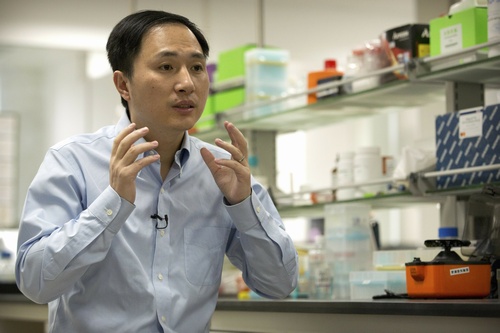It is always difficult to know the truth because it's China, and the source is the Chinese version of Pravda, Xinhua. Was his research sanctioned and only got criticism when it was published and received blowback or was he really seeking "fame" as a rogue scientist, as the government later claimed? The story we are told is that of 22 embryos from seven couples, 16 had the CCRS gene, a protein that the HIV virus binds to, disabled. Only one resulted in birth at the time of the conference although 11 embryos were implanted. The team hypothesizes the child, with an HIV-positive father, would be inherently resistant to HIV, which is a substantial problem in China.
That lends weight to claims that the Chinese government may have known more about this than they let on, plus the fact that 70 percent support gene editing to prevent HIV.

AP Photo/Mark Schiefelbein
And the real story is even hard to pin down with details. The state news outlet says two women became pregnant with the gene-edited embryos, and that three were born.
It's also difficult to gauge how much of this is just nationalism among western countries. When President George W. Bush authorized federal funding for hESC research, academics claimed he had "banned" their research because it was limited it to a few dozen existing lines due to identical concerns about human experimentation. Suddenly claiming there should be limits on Chinese scientists using CRISPR feels a little hypocritical. UK ethicists say the jail term would also have happened there but they did three-person IVF, which was also editing embryos in violation of international guidelines, but gave themselves an exemption.
The concern instead should be that his experiment was not very well designed. But the bigger question, why China would suddenly obey international ethical guidelines on this while obeying them on nothing else, won't be answered any time soon.



Comments